All aboard the green journey – 6 benefits of biobased materials for passenger transport
With global travel approaching pre-pandemic levels, the environmental impact of waste generated by trains, airlines, and cruise ships is back under scrutiny. From in-flight snacks to onboard dining services, the daily disposal of single-use dishes, cups, cutlery, and wrappers significantly contributes to plastic pollution. Read on to find out six reasons why Sulapac’s biobased materials are a perfect fit for passenger transport services looking to mitigate their climate impact.
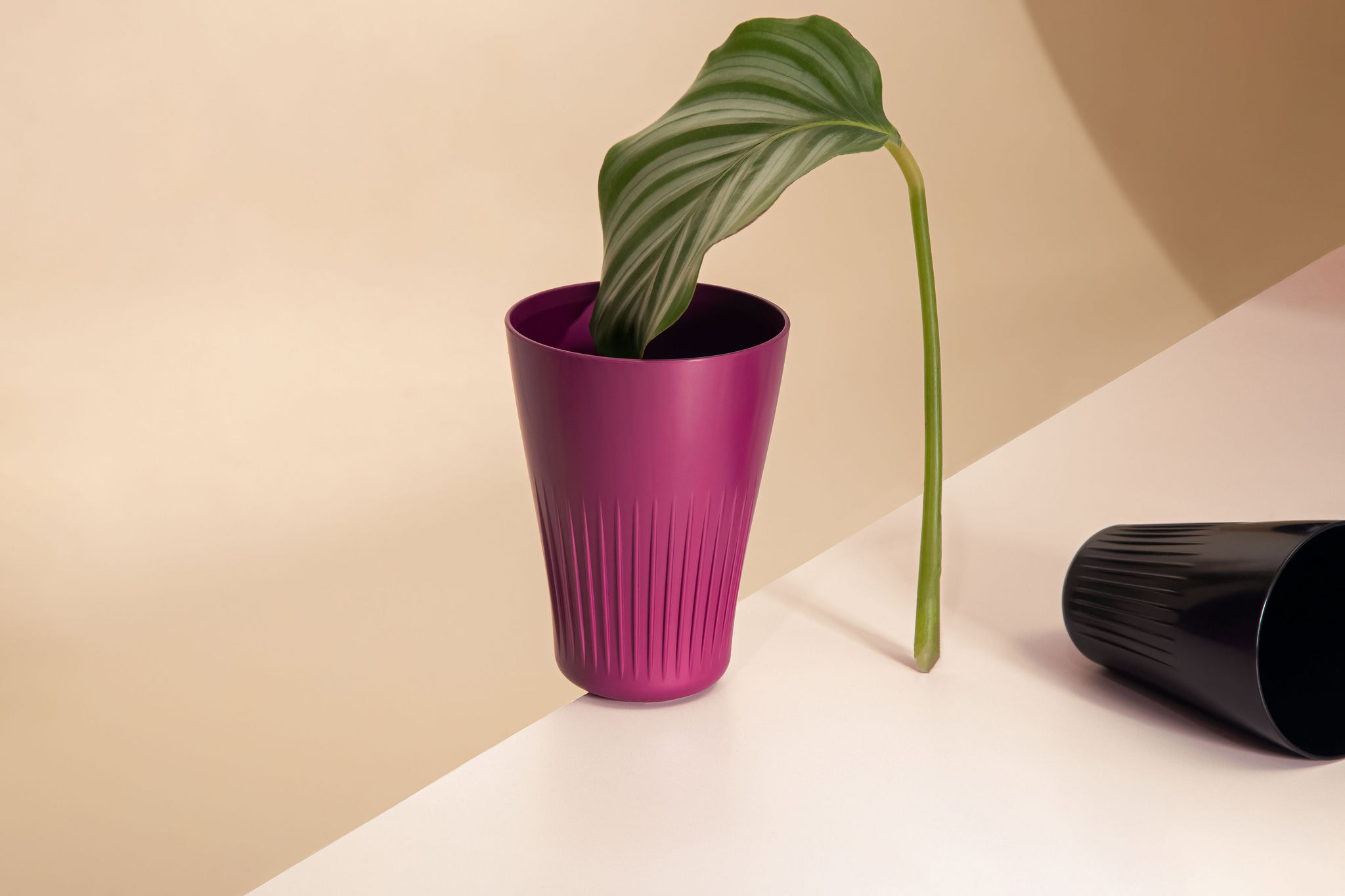
From the skies above to the oceans below, the travel industry contributes heavily to the global waste footprint. According to a report by the International Air Transport Association (IATA), the airline industry alone generates close to 6 million tons of cabin waste annually. An average cruise ship carrying 3,000 passengers and crew produces around 50 tons of solid waste in just one week.
Single-use plastics have traditionally been the go-to option for food packaging and tableware in passenger transport. Catering in challenging and confined spaces must adhere to rigorous standards for food safety, freshness, hygiene, and weight limitations – often making disposable options the most convenient.
The problem with single-use plastics is that they contribute significantly to CO2 emissions and microplastic pollution. By opting for bio-based and biodegradable options, passenger transport services can reduce their carbon footprint while maintaining food safety and meeting regulatory requirements.
Sulapac’s eco-friendly materials help you achieve just that. Here’s how.
1. Lead the way with bio-based, food-safe, and recyclable packaging
Whether you choose single-use or reusable products, Sulapac’s bio-based and biodegradable materials for packaging and tableware leave no permanent microplastics or harmful residues behind. They can be tailored to the varying needs of the passenger transport industry – from lightweight food trays and cups to luxurious tableware with a ceramic feel.
Sulapac materials can be chemically and mechanically recycled, are suitable for industrial composting, and have a natural look and feel. And most importantly, they meet the EU and FDA requirements for food contact materials. Unlike fossil-based materials, cardboard, and paper, which are no longer food-safe after recycling, our materials maintain their food-contact quality even after recycling.
Sulapac materials are designed for mass-production. You can use our local production partners in Europe, USA and Asia, or we can deliver the material to your existing partner.
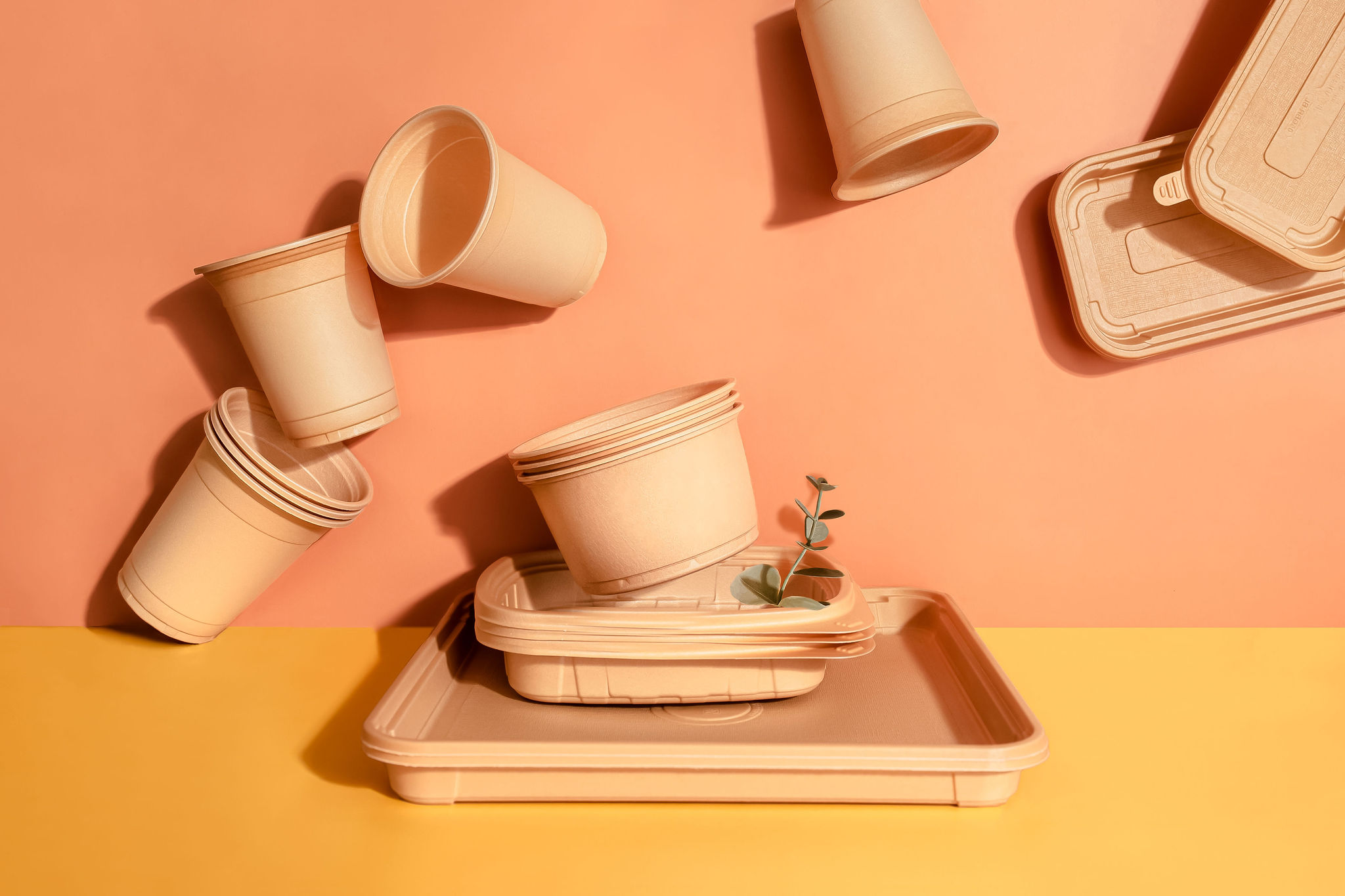
2. Promote reusability without compromising convenience
Many companies within the transport industry are already turning to reusable packaging and dishes. IATA has encouraged airlines to reduce single-use plastics and introduce reusable items to drive circularity3.
Some railway companies have switched to reusable options like porcelain for serving meals and beverages. Cruise lines typically rely on a combination of glass, ceramics, and single-use options depending on the setting.
However, glass and ceramics are prone to breakage in a moving and sometimes turbulent environment, posing a safety hazard to passengers and crew. They are also heavy and require careful handling and storage.
Sulapac Solid is a lightweight, reusable, and sustainable material. It combines the durability and convenience of plastic with the premium look and feel of ceramics. Made entirely from bio-based components, it doesn’t release permanent microplastics in any stage of its life cycle. It also has a smaller carbon footprint than glass and ceramics.
Products made of Sulapac Solid are dishwasher and microwave safe and can withstand approximately 200 washing cycles. They dry faster than plastic and don’t scratch or stain easily.
In addition to being a sustainable choice, reusable Sulapac Solid items become more cost-effective than single-use alternatives after just a few uses.
And the best part – your cup or plate won’t shatter if you accidentally drop them during those bumpy rides!
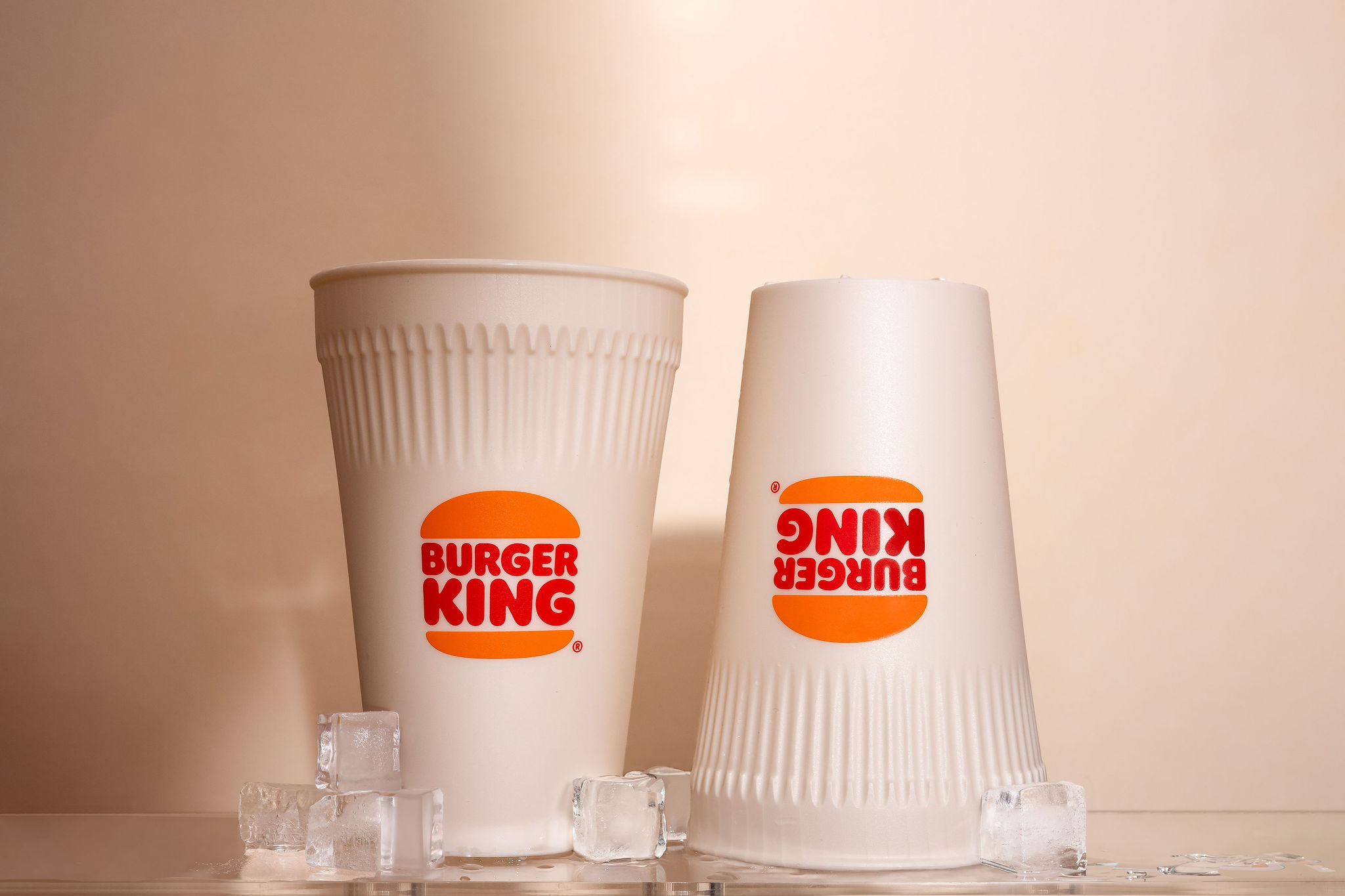
3. Say goodbye to plastic pollution
Limited space and challenging working conditions on trains and airplanes can sometimes make it difficult to store and wash reusable cups and dishes on a large scale. Indeed, single-use alternatives might at times be the only viable option.
But single-use doesn’t have to mean oil-based feedstock and plastic pollution. Sulapac’s sustainably sourced wood-based material, Sulapac Flow 1.7, is ideal for producing thermoformed cups and trays that, despite being disposable, are also eco-friendly. Sulapac cups are alcohol-resistant – unlike paper cups. They’re lightweight, making them easy to transport and store when space is limited.
The material can also be used to produce straws with outstanding usability. Straws made of Sulapac Flow 1.7 won’t get soggy and can be used for up to 24 hours.
In other words, all the benefits of plastic – but without the risk of microplastic pollution and significant impact on global warming.
If Sulapac material accidentally ends up in nature, it biodegrades into CO2, water, and biomass in a similar timeframe as a tree leaf or a piece of natural wood, all without releasing hazardous chemicals into the environment.
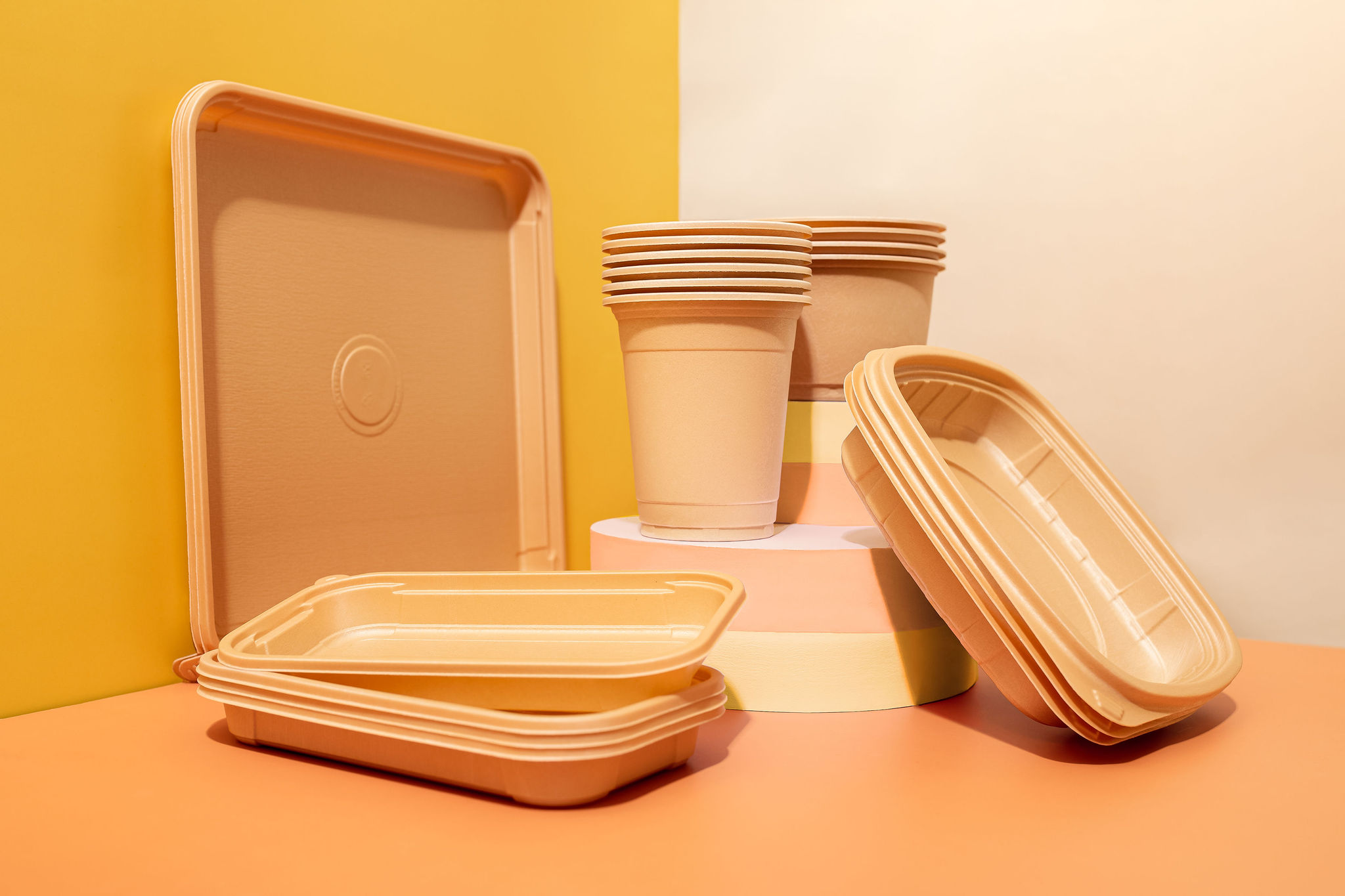
4. Embrace circularity
Sulapac not only supplies sustainable packaging and tableware, but also handles their collection and recycling into new high-quality material. The service covers both reusable Sulapac Solid and single-use Sulapac Flow 1.7 items.
Through the Sulapac Closed-Loop Platform, the passenger transport industry can adopt circularity and reduce its environmental impact.
The circular process can be easily incorporated into the existing cleaning and waste management infrastructures of airplanes, trains, and cruise ships.

5. Stay compliant and future-ready
The new Packaging and Packaging Waste Regulation (PPWR) is expected to enter into force by the end of 2024. The regulation aims to reduce the amount of packaging waste, promote recycling and the use of recycled content, restrict the use of single-use plastics, and minimize the consumption of natural resources.
The regulation is driving many brands across the globe, including the passenger transport industry, to shift away from single-use products towards reusable ones with a smaller carbon footprint.
Opting for biobased, reusable, and recyclable alternatives supports these objectives by minimizing waste and its environmental consequences. It allows companies to reduce their carbon footprint, introduce recycled materials in their packaging, and prepare for future regulatory demands.
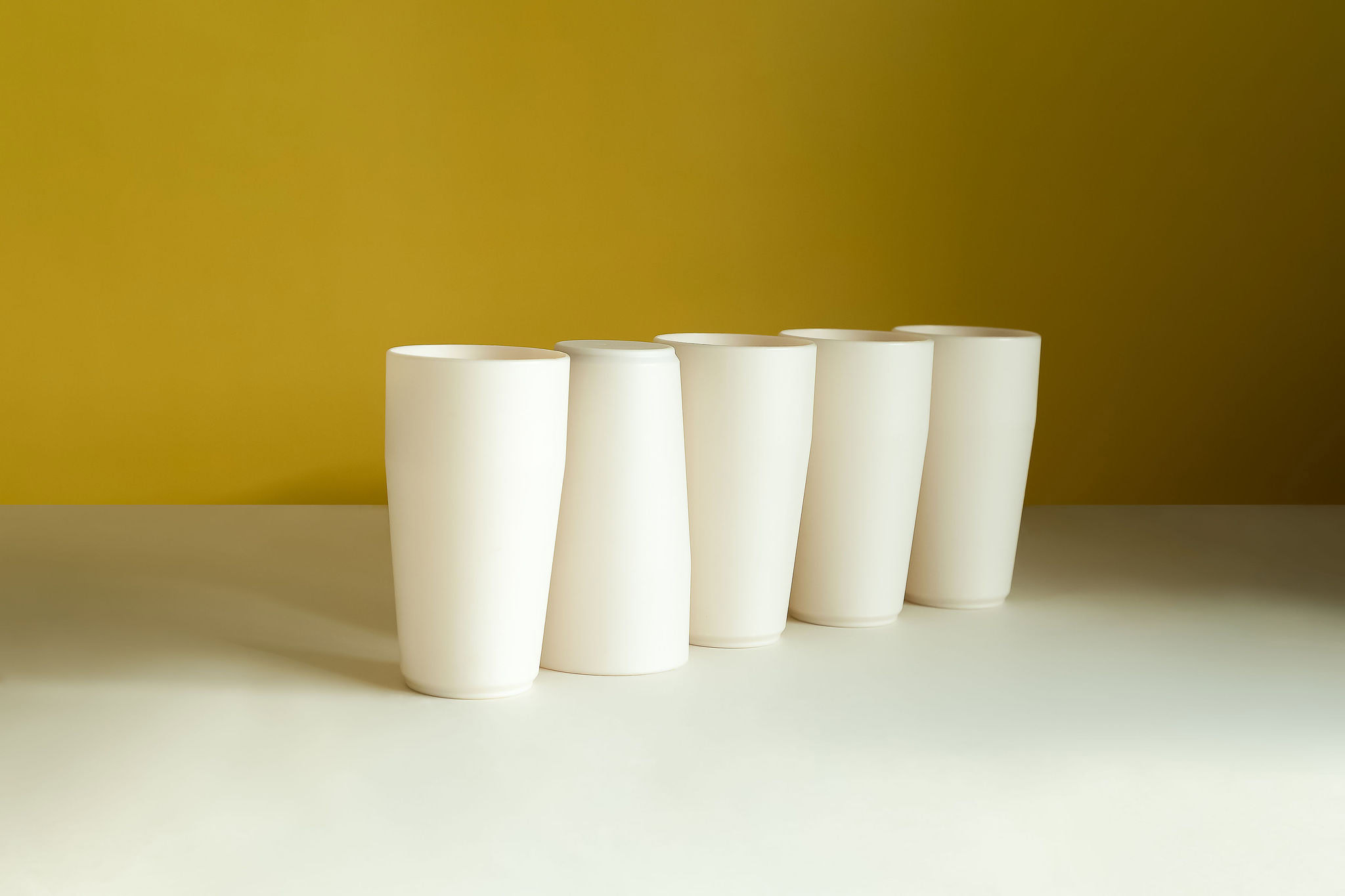
6. Keep up with consumer demands
Passengers are increasingly concerned about the environmental impact of their travel choices and are expecting companies to take sustainable actions. With reusable and biobased products, transport services can enhance their brand image and appeal to environmentally conscious travellers.
“Reusable Sulapac Solid cups are already being used by major global chains, and the customer feedback has been overwhelmingly positive. This shows that prioritizing sustainability is a means to improve customer satisfaction – and, most importantly, safeguard our environment for future generations,” says Miki Lahtinen, Sales Director at Sulapac.
Still wondering about switching to biobased materials? Please don’t hesitate to contact our sales team – they’ll be more than happy to tell you more and help you find the perfect solution for your needs!
Sulapac Ltd is an award-winning material innovation company bringing solutions to the global plastic crisis. By replacing conventional plastic with sustainable, beautiful, and functional Sulapac materials, companies can reduce their carbon footprint, eliminate microplastic pollution, and advance the circular economy. The Helsinki-based company was founded by three scientists in 2016 and serves customers across various industries on three continents. Investors behind Sulapac®, the patented material innovation, include CHANEL and Sky Ocean Ventures.